Introduction
week 1
Coming to Terms with the Terms "Nature" and "Nurture"
January 9: Introduction to the Course
January 11: Why do nature and nurture matter?
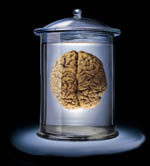
Readings
Judith Rich Harris, "The Idea of Zero Parental Influence," 2006
Michael Noer "Don't Marry Career Women," Forbes.com, August 2006
Steven Pinker, "Why Nature and Nurture Won't Go Away," Daedalus (Fall2004). [available on Blackboard]
Louis Menand, "What Comes Naturally," The New Yorker, November 22, 2002. (This is a review of Steven Pinker's The Blank Slate: The Modern Denial of Human Nature)
The Intellectual History of Nature and Nurture
Nature and Nurture in Religion, Philosophy, and the Human Sciences
January 16: World Religions
January 18: Ancient and Enlightenment Philosophy

Readings
Stevenson and Haberman, Ten Theories of Human Nature, 1-137.
Stevenson, ed., The Study of Human Nature, 1-138.
week 3
Nature and Nurture in Religion, Philosophy, and the Human Sciences, cont.
January 23: Wild Children
January 25: The Human Sciences

Readings
Stevenson and Haberman, Ten Theories of Human Nature, 138-246.
Stevenson, ed., The Study of Human Nature, 139-330.
Websites
Nature and Nurture in History, Ethics, and Real Life
Eugenics 1: State Policies and the Control of Fertility
January 30: Eugenics as Progressive Ideology and Social Movement
February 1: States and Sterilization
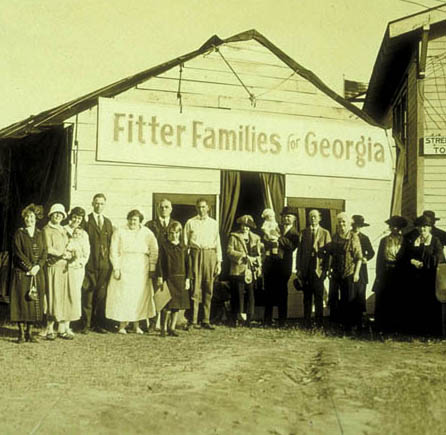
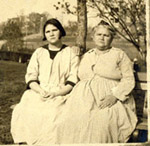
Readings
Buck v. Bell, 1927
D’Antonio, The State Boys Rebellion, 3-182.
Governor John Kitzhaber, Proclamation of Human Rights Day, and apology for Oregon's forced sterilization of institutionalized patients, Salem, Oregon, December 2, 2002
Websites
Eugenics 2: The Biotechnological Marketplace: from Genetic Counseling to Designer Babies
February 6: What happened to eugenics after World War II?
due: title and one-paragraph statement about book review
February 8: New Reproductive Technologies in an Age of Consumer Choice
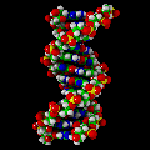
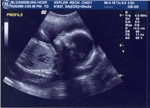
Readings
Mary Ann Baily, "Why I Had Amniocentesis," in Prenatal Testing and Disability Rights, edited by Erik Parens and Adrienne Asch (Georgetown University Press, Washington DC, 2000), 64-71. [available on Blackboard]
D’Antonio, The State Boys Rebellion, 183-280.
Erik Parens and Adrienne Asch, "The Disability Rights Critique of Prenatal Genetic Testing," in Prenatal Testing and Disability Rights, edited by Erik Parens and Adrienne Asch (Georgetown University Press, Washington DC, 2000), 3-43. [available on Blackboard]
Diane Paul, “Eugenic Origins of Medical Genetics,” in The Politics of Heredity: Essays on Eugenics, Biomedicine, and the Nature-Nurture Debate (Albany: State University of New York Press, 1998), 133-156. [available on Blackboard]
Darshak M. Sanghavi, "Wanting Babies Like Themselves, Some Parents Choose Genetic Defects," The New York Times, December 5, 2006. [available on Blackboard]
Websites
Morons and Geniuses 1: The Problem of Intellectual Difference in an Egalitarian Culture
February 13: Intelligence Measures, Standardized Tests, Mass Education
February 15: "Secrets of the SAT"

Readings
John Carson, The Measure of Merit: Talents, Intelligence, and Inequality in the French and American Republics, 1750-1940 (Princeton: Princeton University Press, 2007), 11-37, 159-194 [available on Blackboard]
Nicholas Lemann, "The Great Sorting," The Atlantic Monthly (September 1995): 84-100. [available on Blackboard]
The National Center for Fair and Open Testing, "Ten Myths About the SAT"
Websites
Morons and Geniuses 2: The Many Meanings of Merit
February 20: What is intelligence and what is it for?
February 22: Race, Gender, and Achievement Gaps
due: Book Review
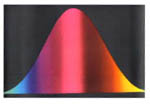
Readings
Abigail Thernstrom and Stephan Thernstrom, No Excuses: Closing the Racial Gap in Learning (New York: Simon and Schuster, 2003), 11-40. [available on Blackboard]
Council for Responsible Genetics, Brief on Intelligence and Genetic Determinism, May 2006
optional: Timothy Egan, Little Asia on the Hill, New York Times, January 7, 2007
optional: National Assessment of Educational Progress, The Nation's Report Card, 12th-Grade Reading and Mathematics Report, February 22, 2007
Sex and Gender 1: The Ambiguously Gendered Body
February 27: Intersex and the Uncertainties of Sexual Nature
March 1: guest: Professor Elizabeth Reis

Readings
Alice Domurat Dreger, "Ambiguous Sex"—or Ambivalent Medicine?The Hastings Center Report 28 (May/June 1998):24-35.
Elizabeth Reis, "Impossible Hermaphrodites: Intersex in America, 1620-1960," Journal of American History 92 (September 2005):411-441. [available on Blackboard]
Joanne Meyerowitz, How Sex Changed, 1-129.
Websites
Sex and Gender 2: The Wrongly Gendered Body
March 6: Christine Jorgensen and Sex Reassignment
March 8: The John/Joan Case

Readings
John Colapinto, "What were the real reasons behind David Reimer's suicide?" slate.com, June 3, 2004.
Council for Responsible Genetics, Brief on Genetic Determinism and Sexual Orientation, May 2006
Joanne Meyerowitz, How Sex Changed, 130-286.
Student Book Review Presentations
March 13:
March 15:
Final take-home exam to be handed out. Due at noon on Monday, March 19, 2007 in 321 McKenzie Hall.